Competitions and programs (95)
2017 ABR Elizabeth Jolley Short Story Prize
Australian Book Review is delighted to announce that Eliza Robertson has won the 2017 ABR Elizabeth Jolley Short Story Prize for her story ‘Pheidippides’. Author David Malouf announced Eliza Robertson as the overall winner at a ceremony at Potts Point Bookshop, Sydney. Dominic Amerena placed second for his story ‘The Leaching Layer’ and Lauren Aimee Curtis came third for her story ‘Butter’. Subscribers can read all three shortlisted stories in the August 2017 Fiction issue. We would like to congratulate all three shortlisted entrants and thank all those who entered their stories
This year the prestigious ABR Elizabeth Jolley Short Story Prize attracted almost 1,200 entries from forty-two countries. The 2017 Jolley Prize is worth a total of $12,500, with a first prize of $7,000 and supplementary prizes of $2,000 and $1,000.
The judges also commended three stories – ‘Contributory Negligence’ by Stevi-Lee Alver (New South Wales), ‘The Man I Should Have Married’ by Catherine Chidgey (New Zealand), and ‘The Fog Harvester’ by Marie Gethins (Ireland). The commended authors each receive $850 and their stories will appear in ABR in coming months.
The 2017 Jolley Prize was judged by ABR Deputy Editor Amy Baillieu, and authors Ellen van Neerven and Chris Flynn. Click here for more information about the judges.
About the 2017 Jolley Prize shortlisted authors
Eliza Robertson studied creative writing at the University of East Anglia, where she received the Man Booker Scholarship. In 2013, she won the Commonwealth Short Story Prize and was shortlisted for the Journey Prize and CBC Short Story Prize. Her début story collection, Wallflowers, was shortlisted for the East Anglia Book Award and selected as a New York Times editor’s choice. Her first novel, Demi-Gods, comes out with Penguin Canada and Bloomsbury in late 2017.
Dominic Amerena is a writer, editor, and researcher from Melbourne. His work has appeared in The Australian, The Age, Overland, The Lifted Brow, Meanjin, The Sydney Morning Herald, The Guardian, and Vice. His short story ‘Help Me Harden My Heart’ was commended in the 2016 ABR Elizabeth Jolley Short Story Prize.
Lauren Aimee Curtis lives in Sydney where she is a PhD candidate at the University of Technology. Her work has appeared in Catapult, The Atlas Review, The Lifted Brow, Cordite Poetry Review, The Canary Press, and elsewhere. In 2014, she was runner-up in the Overland Story Wine Prize. She is currently writing a novella.
The 2017 Jolley Prize longlist
‘Contributory Negligence’ by Stevi-Lee Alver (NSW) - Commended
‘The Leaching Layer’ by Dominic Amerena (Vic.) - Shortlisted
‘Dreams of a Common Language’ by Jessica Au (Vic.)
‘A Real Man’ by Kate Blandford (US)
‘The Man I Should Have Married’ by Catherine Chidgey (NZ) - Commended
‘Thin Girls’ by Diana Clarke (US)
‘Butter’ by Lauren Aimee Curtis (NSW) - Shortlisted
‘Treading Water’ by Julie Galvin (NSW)
‘The Fog Harvester’ by Marie Gethins (Ireland) - Commended
‘A New Life’ by Anthony Lawrence (Vic.)
‘The Dark Road Home’ by Gabrielle Leago (Vic.)
‘Starry Night’ by Cara Marks (UK)
‘The Dark Ages’ by Margaret Mulvihill (UK)
‘Hinterhaus’ by S.J Norman (NSW)
‘Clementine of the Future’ by Emily O'Grady (Qld)
‘Pheidippides’ by Eliza Robertson (UK) - Winner
‘The Cry Room’ by Gaele Sobott (NSW)
‘Depths Exceeded’ by Jessica White (Qld)
Please read our list of Frequently Asked Questions before contacting us with a question about the Jolley Prize.
You may be interested in reading the shortlisted stories from previous years. More information about all our past winners is available here, along with links to their stories.
ABR gratefully acknowledges Mr Ian Dickson's generous support for the Jolley Prize.
2017 Calibre Essay Prize Judges
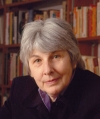 Sheila Fitzpatrick, a professor at the University of Sydney specialising in the history of modern Russia, is one of the world’s most influential Soviet historians. She is the author of two memoirs, My Father’s Daughter (2010) and A Spy in the Archives (2013). Her most recent book, On Stalin’s Team: The years of living dangerously in Soviet politics (2015), shared the 2016 Prime Minister’s Literary Award for non-fiction. Her essays and reviews appear in Australian Book Review and the London Review of Books.
Sheila Fitzpatrick, a professor at the University of Sydney specialising in the history of modern Russia, is one of the world’s most influential Soviet historians. She is the author of two memoirs, My Father’s Daughter (2010) and A Spy in the Archives (2013). Her most recent book, On Stalin’s Team: The years of living dangerously in Soviet politics (2015), shared the 2016 Prime Minister’s Literary Award for non-fiction. Her essays and reviews appear in Australian Book Review and the London Review of Books.
 Peter Rose has been the Editor of Australian Book Review since 2001. Previously he was a publisher at Oxford University Press throughout the 1990s. Rose has published several books of poetry, two novels, a family memoir, Rose Boys (2003, now a Text Classic). He published The Oxford Book of Australian Essays (1997), and his own essays have appeared in past editions of The Best Australian Essays.
Peter Rose has been the Editor of Australian Book Review since 2001. Previously he was a publisher at Oxford University Press throughout the 1990s. Rose has published several books of poetry, two novels, a family memoir, Rose Boys (2003, now a Text Classic). He published The Oxford Book of Australian Essays (1997), and his own essays have appeared in past editions of The Best Australian Essays.
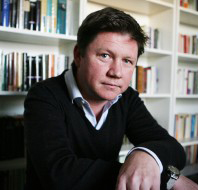 Geordie Williamson was for several years chief literary critic of The Australian. He is now the Publisher at Picador Australia. Geordie Williamson, who published his first review in ABR in 2001, won the 2011 Pascall Prize for Criticism. He edited the 2015 and 2016 editions of The Best Australian Essays (Black Inc.). He is the author of The Burning Library: Our great novelists lost and found (2011).
Geordie Williamson was for several years chief literary critic of The Australian. He is now the Publisher at Picador Australia. Geordie Williamson, who published his first review in ABR in 2001, won the 2011 Pascall Prize for Criticism. He edited the 2015 and 2016 editions of The Best Australian Essays (Black Inc.). He is the author of The Burning Library: Our great novelists lost and found (2011).
The Calibre Essay Prize
The Calibre Essay Prize is one of the world’s leading prizes for a new essay and it is now worth a total of $7,500. The Calibre Essay Prize, then known as the Calibre Prize for an Outstanding Essay, was first presented in 2007 to Elisabeth Holdsworth for her essay 'An die Nachgeborenen: For Those Who Come After' as part of a joint initiative between ABR and Copyright Agency's Cultural Fund.
Entries are now open for the 2023 Calibre Essay Prize.
More information about past winners their winning essays can be found here.
Please read our Frequently Asked Questions and Terms of Conditions before contacting us with queries about the Calibre Essay Prize.
We gratefully acknowledge the long-standing support of Peter McLennan and Mary-Ruth Sindrey.
2017 Calibre Essay Prize
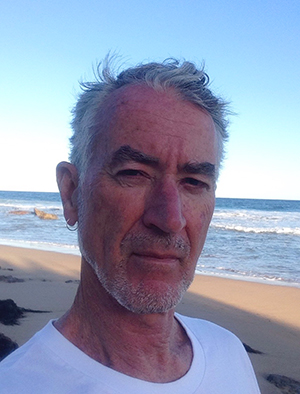 Michael AdamsMichael Adams is the winner of the eleventh Calibre Essay Prize. The judges – award-winning author and historian Sheila Fitzpatrick, ABR Editor Peter Rose, and Picador Publisher Geordie Williamson – chose Michael Adams’s essay ‘Salt Blood’ from a field of almost 200 essays submitted from fourteen countries. Michael Adams receives $5,000, and his essay appears in the June–July issue of Australian Book Review.
Michael AdamsMichael Adams is the winner of the eleventh Calibre Essay Prize. The judges – award-winning author and historian Sheila Fitzpatrick, ABR Editor Peter Rose, and Picador Publisher Geordie Williamson – chose Michael Adams’s essay ‘Salt Blood’ from a field of almost 200 essays submitted from fourteen countries. Michael Adams receives $5,000, and his essay appears in the June–July issue of Australian Book Review.
‘Salt Blood’ is a remarkable and highly original meditation on freediving and mortality. On learning that he had won the Calibre Essay Prize, Michael Adams commented: ‘Winning the Calibre Essay Prize is an incredible honour, and a total surprise. I have followed ABR and Calibre for many years, and drawn much inspiration and insight from previous winners. I hope my essay highlights some hard issues: I take Rebecca Solnit’s position that we write the stories that we can’t tell anyone.’
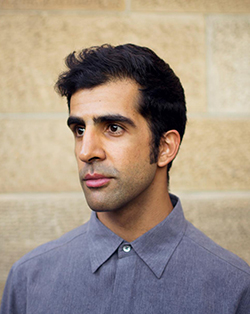 Darius Sepehri (photograph by Elena Carletti)This year ABR has added a second prize, worth $2,500. The winner is Darius Sepehri, a researcher and PhD student at the University of Sydney. His essay – entitled ‘To Speak of Sorrow’ (to be published in the August issue) – is about the many kinds of grief and their different expressions in writing and culture, as lament, testimony, or ritual.
Darius Sepehri (photograph by Elena Carletti)This year ABR has added a second prize, worth $2,500. The winner is Darius Sepehri, a researcher and PhD student at the University of Sydney. His essay – entitled ‘To Speak of Sorrow’ (to be published in the August issue) – is about the many kinds of grief and their different expressions in writing and culture, as lament, testimony, or ritual.
The judges have commended two other essays: ‘Change, We, Art’ by Meng Jin (USA/UK), and ‘Making Things’ by Sara Dowse’ (Australia), which will be published in coming issues.
Michael Adams’s winning essay is published in the June–July 2017 issue of ABR.
Subscribe to ABR Online to gain access to this issue online, plus the ABR archive (containing all Calibre Prize essays published from 2011).
Click here for more information about past winners.
Click here for more information about the judges.
We gratefully acknowledge the generous support of Mr Colin Golvan QC.
2016 Jolley Prize winner: Josephine Rowe
Announcing the 2016 Jolley Prize winner
Australian Book Review is delighted to announce that Josephine Rowe has won the 2016 ABR Elizabeth Jolley Short Story Prize for her story 'Glisk'. Ian Dickson announced Josephine as the overall winner at the 2016 Melbourne Writers Festival. Anthony Lawrence placed second for his story 'Ash' and Jonathan Tel came third for his story 'The Water Calligrapher's Women'. Subscribers can read all three shortlisted stories in the August 2016 Fiction issue. We would like to congratulate all three shortlisted entrants and thank all those who entered their stories
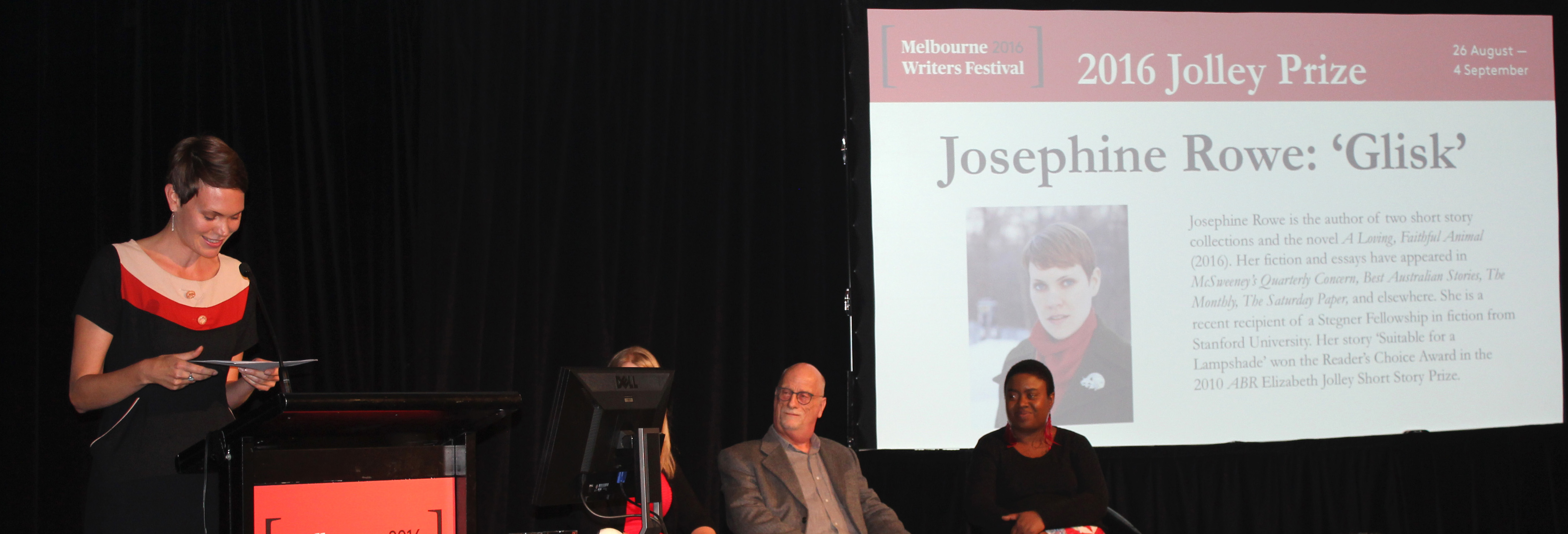 Josephine Rowe reads from her winning story 'Glisk' at the 2016 Jolley Prize ceremony at the Melbourne Writers Festival
Josephine Rowe reads from her winning story 'Glisk' at the 2016 Jolley Prize ceremony at the Melbourne Writers Festival
The ABR Elizabeth Jolley Short Story Prize is one of the country’s most prestigious awards for short fiction. This year the Jolley Prize attracted almost 1400 entries from thirty-eight different countries. The 2016 Jolley Prize was judged by ABR Deputy Editor Amy Baillieu, and authors Maxine Beneba Clarke and David Whish-Wilson.
About Josephine Rowe
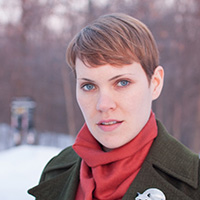 Josephine Rowe is the author of two short story collections and the novel A Loving, Faithful Animal (2016). Her fiction and essays have appeared in McSweeney’s Quarterly Concern, Best Australian Stories, The Monthly, The Saturday Paper, and elsewhere. She is a recent recipient of a Stegner Fellowship in fiction from Stanford University. Her story ‘Suitable for a Lampshade’ won the Reader’s Choice Award in the 2010 ABR Elizabeth Jolley Short Story Prize. Read her winning story 'Glisk'.
Josephine Rowe is the author of two short story collections and the novel A Loving, Faithful Animal (2016). Her fiction and essays have appeared in McSweeney’s Quarterly Concern, Best Australian Stories, The Monthly, The Saturday Paper, and elsewhere. She is a recent recipient of a Stegner Fellowship in fiction from Stanford University. Her story ‘Suitable for a Lampshade’ won the Reader’s Choice Award in the 2010 ABR Elizabeth Jolley Short Story Prize. Read her winning story 'Glisk'.
2017 Peter Porter Poetry Prize
On March 23, before a big audience at Collected Works Bookshop in Melbourne, Morag Fraser announced the two winners of the 2017 Peter Porter Poetry Prize (worth $7,500). The winners, chosen from a field of nearly 1000 entries from twenty-two countries, are Louis Klee (Vic) for his poem ‘Sentence to Lilacs’ and Damen O’Brien (Qld) for ‘pH’. The winners each receive $2,500.
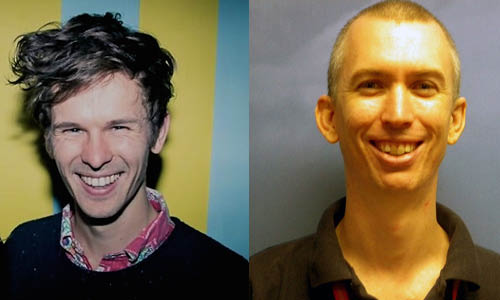 2017 Porter Prize winners Louis Klee and Damen O'Brien
2017 Porter Prize winners Louis Klee and Damen O'Brien
The other five shortlisted poets – Ronald Dzerigian (USA), Anthony Lawrence (NSW), Michael Lee Phillips (USA), Jen Saunders (NSW), and Jessie Tu (NSW) – each receive $500. The seven shortlisted poems appear in ABR’s March 2017 issue.
The judges were Ali Alizadeh, Jill Jones, and Felicity Plunkett.
ABR Editor Peter Rose commented: ‘The Porter Prize – now in its twelfth year – is dear to our hearts at ABR. Year after year it goes on generating hundreds of new poems around the world. This year’s field was by far the largest to date. We thank everyone who entered and heartily congratulate our two winners and the other five shortlisted poets.’
About the winners
Louis Klee lives in Melbourne and is currently studying in Cambridge. He has studied playwriting at NIDA and is an MFA writing candidate at the VCA. He earned a Bachelor of Philosophy at the ANU. His poetry has appeared in Meanjin, Cordite, and Gargouille, among other places, and his plays have been shortlisted for prizes such as The Silvergull Award. He is currently working on his first full-length collection of poems.
Damen O’Brien is a Queensland poet. His work has been published in Cordite and The Courier Mail, and has won or been highly commended in the WB Yeats Poetry Prize, the Nillumbik Ekphrasis Poetry Award, the Philip Bacon Ekphrasis Prize, the Ipswich Poetry Feast, and the FAW Tasmania Poetry Prize.
Please read our Frequently Asked Questions page before contacting us with queries about the Porter Prize.
Click here for more information about past winners and to read their poems.
Click here for more information about the 2017 judges.
We gratefully acknowledge the long-standing support of Ms Morag Fraser AM, and the support of ABR Patrons. The print is donated by Mr Ivan Durrant in honour of Georges Mora.
2017 Porter Prize Judges
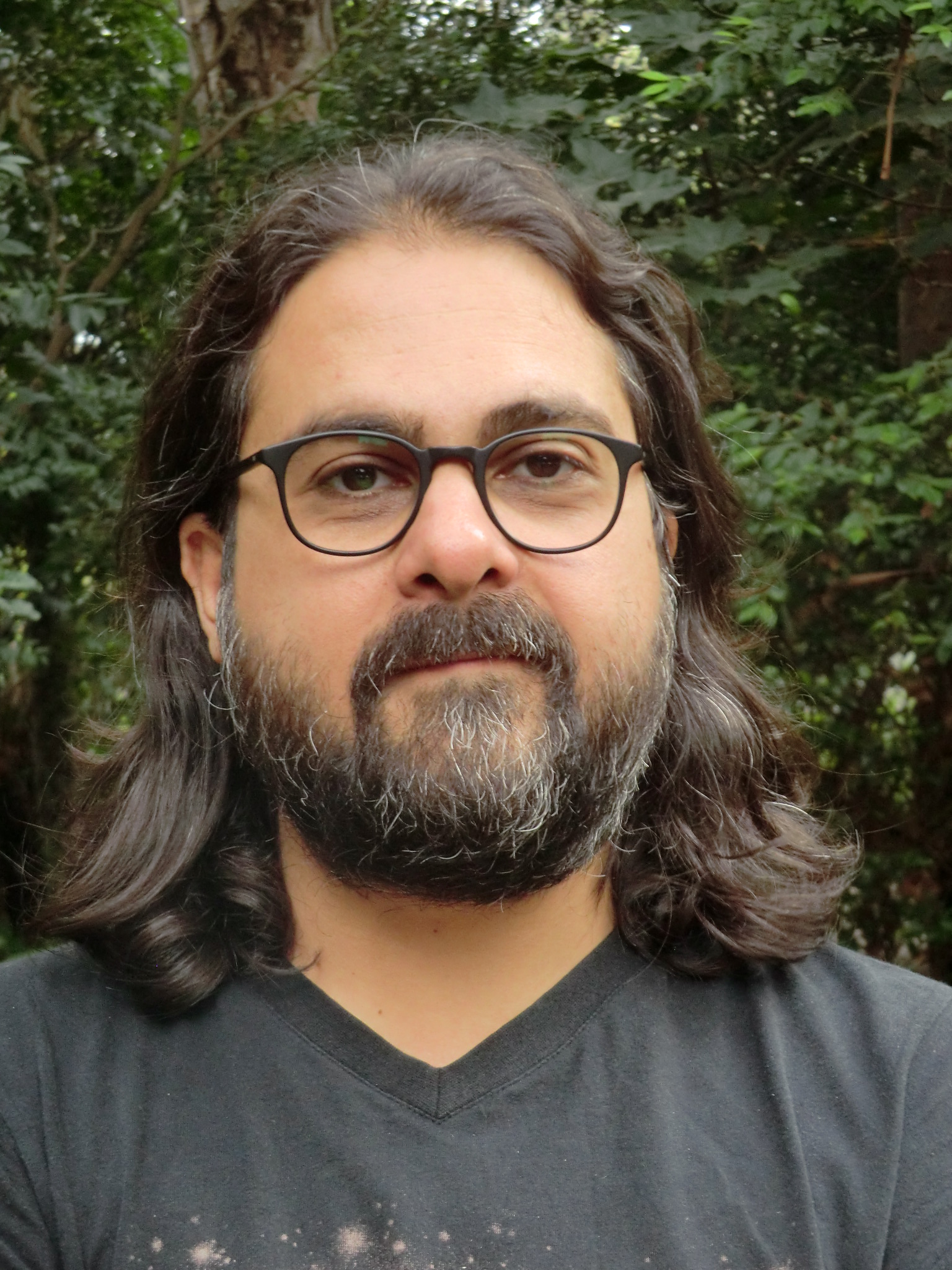 Ali Alizadeh's collection of poetry, Ashes in the Air (UQP, 2011) was shortlisted for the Prime Minister's Literary Award. His latest book, Transactions (UQP, 2013), was described as 'twisted', 'vicious' and 'remarkable'. His new book, The Last Days of Jeanne d'Arc, will be published in 2017 by Giramondo Publishing. He lectures at Monash University.
Ali Alizadeh's collection of poetry, Ashes in the Air (UQP, 2011) was shortlisted for the Prime Minister's Literary Award. His latest book, Transactions (UQP, 2013), was described as 'twisted', 'vicious' and 'remarkable'. His new book, The Last Days of Jeanne d'Arc, will be published in 2017 by Giramondo Publishing. He lectures at Monash University.
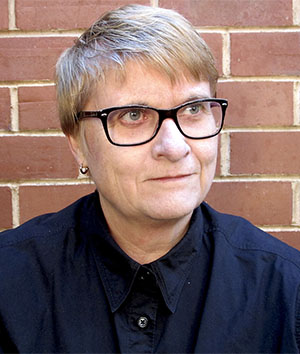 Jill Jones has published nine full-length books of poetry, including Breaking the Days (2015), The Beautiful Anxiety (2014), which won the 2015 Victorian Premier's Literary Award for Poetry, and Ash is Here, So are Stars (2012). Her work is represented in major anthologies, including the Macquarie PEN Anthology of Australian Literature (2009) and The Penguin Anthology of Australian Poetry (2009). Her poetry was included in the 2016 ABR States of Poetry anthology for South Australia. She is a member of the J.M. Coetzee Centre for Creative Practice, University of Adelaide.
Jill Jones has published nine full-length books of poetry, including Breaking the Days (2015), The Beautiful Anxiety (2014), which won the 2015 Victorian Premier's Literary Award for Poetry, and Ash is Here, So are Stars (2012). Her work is represented in major anthologies, including the Macquarie PEN Anthology of Australian Literature (2009) and The Penguin Anthology of Australian Poetry (2009). Her poetry was included in the 2016 ABR States of Poetry anthology for South Australia. She is a member of the J.M. Coetzee Centre for Creative Practice, University of Adelaide.
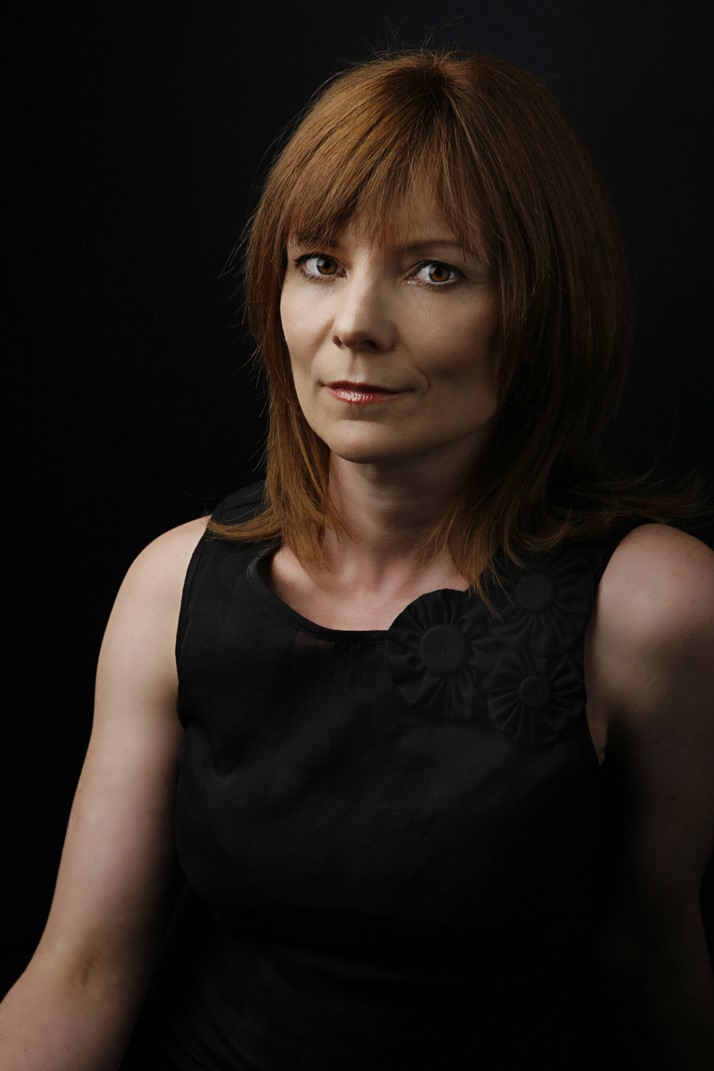 Felicity Plunkett is a poet and critic, and has a PhD from the University of Sydney. Her first collection of poetry Vanishing Point won the Arts Queensland Thomas Shapcott Prize and was shortlisted for several other awards. Felicity’s chapbook Seastrands was published in Vagabond Press’s Rare Objects series in 2011, and she is the editor of Thirty Australian Poets (UQP, 2011). She is Poetry Editor with University of Queensland Press and a widely published reviewer.
Felicity Plunkett is a poet and critic, and has a PhD from the University of Sydney. Her first collection of poetry Vanishing Point won the Arts Queensland Thomas Shapcott Prize and was shortlisted for several other awards. Felicity’s chapbook Seastrands was published in Vagabond Press’s Rare Objects series in 2011, and she is the editor of Thirty Australian Poets (UQP, 2011). She is Poetry Editor with University of Queensland Press and a widely published reviewer.
2016 Calibre Essay Prize winner
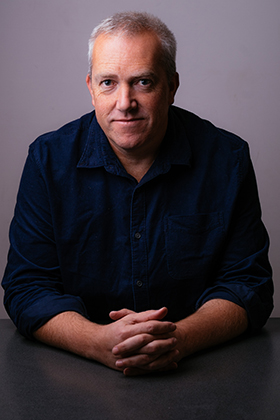 Michael Winkler (photograph by Chris Riordan)Michael Winkler is the winner of the 2016 Calibre Prize for an Outstanding Essay. The judges – Sophie Cunningham (winner of the 2015 Calibre Prize) and Peter Rose – chose Mr Winkler's essay 'The Great Red Whale' from a field of almost 200 entries submitted from thirteen different countries. Michael Winkler receives $5,000 and his essay appears in the June–July 2016 issue of ABR.
Michael Winkler (photograph by Chris Riordan)Michael Winkler is the winner of the 2016 Calibre Prize for an Outstanding Essay. The judges – Sophie Cunningham (winner of the 2015 Calibre Prize) and Peter Rose – chose Mr Winkler's essay 'The Great Red Whale' from a field of almost 200 entries submitted from thirteen different countries. Michael Winkler receives $5,000 and his essay appears in the June–July 2016 issue of ABR.
'The Great Red Whale' is an essay about fractures, overlaying the ruptures within the author's psyche with the fissure between Indigenous and non-Indigenous Australians, something he believes keeps us 'heartsore as a nation'. This excoriating yet remarkably subtle meditation is also a tribute to consolations: landscape, specifically the desert of Central Australia, and literature, notably Moby-Dick.
On learning that he had won the Calibre Prize, Michael Winkler – a Melbourne author – told Advances: 'Reading ABR every month gives me access to sophisticated and important ideas in accessible form. The Calibre Prize essays are not only an annual ABR highlight but notable events in our national life. I remember reading the first Calibre Prize-winning essay by Elisabeth Holdsworth (2007), her pungent masterwork about memory and return. I never see the name Slavoj Žižek without thinking of Kevin Brophy's astonishing account (2009) of living near an abusive neighbour. When I worked with children with autism, I sought insights from rereading Rachel Robertson's 'Reaching One Thousand' (2008). I feel simultaneously completely unworthy and utterly overjoyed to have any proximity to this stellar list of past winners.'
The judges have commended two other essays: Joshua Barnes's 'Terra Australis Incognita' and Sarah Viren's 'Dear Julie'.
This is the tenth Calibre Prize, which is intended to advance the essay form. We look forward to offering Calibre again in 2017.
Michael Winklers’s winning essay is published in the June–July 2016 issue of ABR.
![]() Click here to download the media release
Click here to download the media release
Subscribe to ABR Online to gain access to this issue online, plus the ABR archive (containing all Calibre Prize essays published from 2011).
Click here for more information about past winners.
Click here for more information about the judges.
We gratefully acknowledge the generous support of Mr Colin Golvan QC.
ABR Reader Survey 2016
We love hearing from readers as to what they like about Australian Book Review – whom they enjoy reading; what they would like to see more (or less) of. We have a bright, engaged readership, and we always welcome your comments. Please complete our reader survey and help us to go on improving the magazine.
ABR is a fast-changing and adaptive arts organisation. Here are some of the programs we have introduced in recent years: writers' fellowships now worth $7,500; three lucrative international prizes; podcasts; States of Poetry; ABR Online; an improved website; fully paid one-year editorial internships, etc.
We will continue to improve the magazine and offer new programs, but before we do it will be good to hear from ABR readers of all kinds (subscribers, non-subscribers, website browsers, devotees, occasional readers) as to how they rate the magazine and what they would like to see in it.
The survey takes about five minutes to complete. Feel free to skip any questions that don't interest you. The survey is totally anonymous – unless you want to be in the running for one of two five-year complimentary subscriptions to ABR Online (in which case we will need your name and email address).
With best wishes
Peter Rose
Editor
Peter Porter Poetry Prize Judges' Report 2016
More than 700 poets entered this year's Peter Porter Poetry Prize; just over 200 of these entries came from overseas. The judges were Luke Davies, Lisa Gorton and Kate Middleton. They completed their judgement without knowing the name, gender, background or nationality of any entrant.
This prize honours Peter Porter and its judges seek to honour him not only in name but in principle: by valuing various approaches to poetry, and by a serious commitment to the judging process. The judges read all entries over the summer and together compiled a varied and impressive longlist of nearly seventy poems, which they read over for several weeks. Over a day in Sydney, they discussed these poems and created a shortlist of five poems: poems which had stayed in their minds all summer and which, on each rereading, kept the power to surprise, impress and move them. In the judges' view, any of these shortlisted poems would have made a worthy winner of this year's Peter Porter Poetry Prize. The five shortlisted poems are '... a passing shower? (18 aphorisms verging on a narrative)', 'Lament for "Cape" Kennedy', 'Prelude to a Voice', 'Rage to Order' and 'Tailings'.
By turns lyrical, jerky, sardonic, funny and facetious, '... a passing shower? (18 aphorisms verging on a narrative)' charges the spaces between its aphorisms with imaginative energy: it builds a sort of electric tension between opposing voices, registers and ways of noticing the world. The poem works with an hallucinatory cognitive dissonance, which challenges settled poetic modes.
'Lament for "Cape" Kennedy' is an elegy of unshowy craft and emotional heft. Keeping its conversational tone, it ranges easily over details, personal memories and stories of injustice and dispossession. The intimacy of its details and the immediacy of its speaking voice enhance and enrich the sorrow and anger of this powerful lament.
'Prelude to a Voice' works at the same time with local detail and mythic depth: 'to keep/ an eye out for snakes/ while carrying the burden/ of water in a steel flask,/ as if bearing the urn/ of all our deaths'. Images open out of images, new forms out of white spaces: the whole page works like a phantasmagorical landscape, in which each part forms its own centre. This is a poem that captures how the mind shimmers in and outside language and its feeling for place.
'Rage to Order' is a poem of vertiginous self-consciousness: its extremity of feeling countervailed by the pressure of silence it makes felt. Like Gerard Manley Hopkins in 'No worst, there is none', this poet brings experience to a pitch in language at once pared back and wild with its play of repeating words and sounds.
'Tailings' is a poem remarkable for its close-woven language, everywhere charged with vivid details; and, at the same time, remarkable for its open and wide-ranging attentiveness. In 'Tailings' the poet nowhere sets place at an aesthetic distance but everywhere attends to its mess and profligacy, a mode of perception alive to the hunger of animals.
